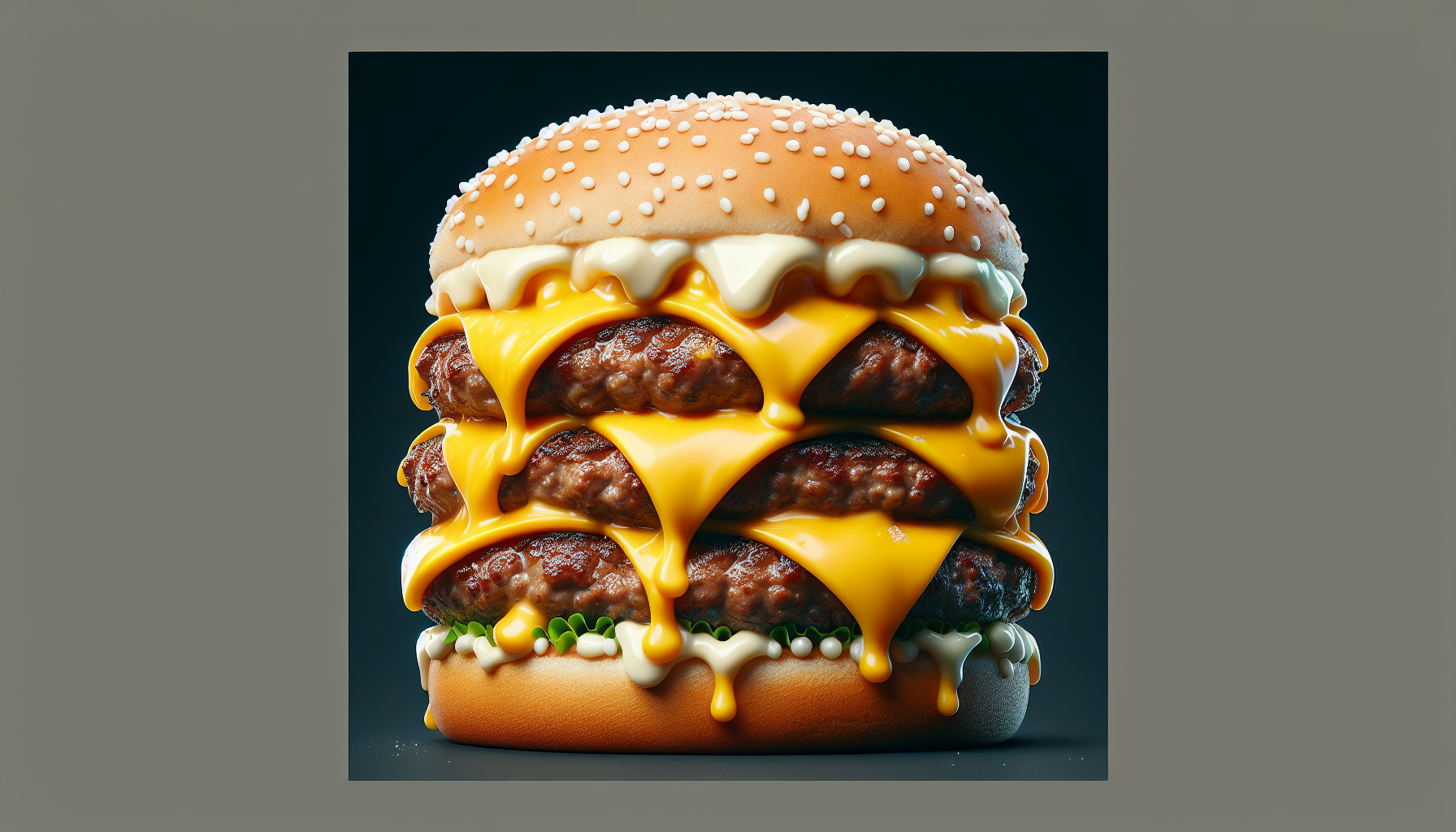In today’s article, we explore the fascinating topic of how a high-fat diet can impact your cholesterol levels. Recent scientific studies have shed light on this subject, providing valuable insights into the direct connection between dietary fat intake and cholesterol levels. For instance, a study conducted by researchers at the University of Michigan found that a diet rich in saturated fats can raise LDL (bad) cholesterol levels, increasing the risk of heart disease. Additionally, another study published in the New England Journal of Medicine revealed that individuals who followed a low-fat diet experienced a decrease in their LDL cholesterol levels. As we delve into this subject, we will uncover the potential risks and benefits of consuming a high-fat diet and its implications for our overall health.
Discover the Ultimate Weight Loss Secrets Here!
Potential Effects of a High-Fat Diet on Cholesterol Levels
When it comes to the impact of a high-fat diet on cholesterol levels, there are several potential effects to consider. It is important to note that not all fats are created equal, and the type and source of fat in your diet can have varying effects on your cholesterol levels. Let’s take a closer look at some of the potential effects.
Increased LDL Cholesterol Levels
A high-fat diet, especially one that is rich in saturated and trans fats, has been associated with an increase in low-density lipoprotein (LDL) cholesterol levels. LDL cholesterol is often referred to as “bad” cholesterol because it can build up in the arteries, leading to atherosclerosis and an increased risk of heart disease. Studies have shown that diets high in saturated fats, such as those found in red meat, full-fat dairy products, and tropical oils, can raise LDL cholesterol levels.
Decreased HDL Cholesterol Levels
In contrast to LDL cholesterol, high-density lipoprotein (HDL) cholesterol is often referred to as “good” cholesterol. HDL cholesterol helps remove excess cholesterol from the bloodstream and transports it to the liver for excretion. However, a high-fat diet, particularly one that is low in unsaturated fats, can reduce HDL cholesterol levels. Unsaturated fats, found in foods like nuts, seeds, avocados, and fatty fish, have been shown to increase HDL cholesterol levels.
Altered Ratio of LDL to HDL Cholesterol
Another potential effect of a high-fat diet is an alteration in the ratio of LDL to HDL cholesterol. This ratio is often used as an indicator of cardiovascular risk, with a higher ratio associated with an increased risk of heart disease. Consuming excess saturated and trans fats while consuming inadequate amounts of unsaturated fats can contribute to an unfavorable LDL to HDL cholesterol ratio.
Influence on Triglyceride Levels
Triglycerides are a type of fat found in the bloodstream, and high levels of triglycerides have been associated with an increased risk of heart disease. A high-fat diet, particularly one high in simple sugars and refined carbohydrates along with fats, can lead to elevated triglyceride levels. This is because excess dietary fat is stored as triglycerides by the body. Consuming a high-fat diet, especially one that is also high in carbohydrates and low in fiber, can contribute to an increase in triglyceride levels.
Click Here for Proven Fat-Burning Strategies!
Mechanism of Action
To understand how a high-fat diet impacts cholesterol levels, it is essential to consider the underlying mechanisms at play. Two key mechanisms that play a role in this relationship are the impact of dietary fat on cholesterol synthesis and the role of dietary fat in lipoprotein metabolism.
Impact of Dietary Fat on Cholesterol Synthesis
Dietary fat can influence the body’s synthesis of cholesterol. When you consume dietary fat, your liver produces cholesterol in response to its presence. Consuming excessive amounts of saturated and trans fats, which are commonly found in processed foods and animal products, can lead to an increase in cholesterol synthesis. This can contribute to elevated LDL cholesterol levels.
Role of Dietary Fat in Lipoprotein Metabolism
Lipoproteins play a crucial role in cholesterol transport, and dietary fat can impact their metabolism. A high intake of saturated and trans fats can increase the production of very-low-density lipoprotein (VLDL), a type of lipoprotein that transports triglycerides from the liver to peripheral tissues. VLDL can be converted to LDL cholesterol, leading to higher levels of LDL in the bloodstream. Conversely, consuming unsaturated fats can promote the production of larger, less dense LDL particles, which are considered less atherogenic.
Unlock Your Path to a Healthier You!
Research Studies
Scientific studies play a vital role in understanding the impact of a high-fat diet on cholesterol levels. Let’s take a look at a few recent studies that have investigated this topic.
Effects of a High-Fat Diet on Lipid Profiles in Humans
In a randomized controlled trial published in the American Journal of Clinical Nutrition, researchers examined the effects of a high-fat diet on lipid profiles in healthy individuals. Participants consumed a diet high in saturated fat for four weeks, and the results showed a significant increase in LDL cholesterol levels and a decrease in HDL cholesterol levels. These findings suggest that a high-fat diet, particularly one high in saturated fats, can have adverse effects on lipid profiles.
Animal Model Experiment on High-Fat Diet and Cholesterol Levels
A study published in the Journal of Nutrition and Metabolism investigated the impact of a high-fat diet on cholesterol levels in rats. The animals were fed a diet high in saturated fats for eight weeks, and the results showed a significant increase in total cholesterol, LDL cholesterol, and triglyceride levels. This study provides further evidence that a high-fat diet, specifically one high in saturated fats, can adversely affect cholesterol levels.
Long-Term Effects of High-Fat Diets on Cholesterol
In a long-term prospective cohort study published in the Archives of Internal Medicine, researchers followed a large group of participants for over 20 years to examine the effects of high-fat diets on cholesterol levels. The study found that individuals who consumed a high-fat diet, especially one high in saturated and trans fats, had higher LDL cholesterol levels and a less favorable LDL to HDL cholesterol ratio over time. These findings emphasize the long-term impact of dietary fat on cholesterol levels.
Mitigating Factors and Individual Variations
It’s important to note that the impact of a high-fat diet on cholesterol levels can vary among individuals due to several mitigating factors and individual variations. Some of these factors include genetic predisposition, exercise and physical activity, and concurrent consumption of antioxidant-rich foods.
Genetic Predisposition
Individuals may have genetic variations that affect how their bodies metabolize and regulate cholesterol. Some people may be more susceptible to the cholesterol-raising effects of a high-fat diet, while others may be more resilient. Genetic testing can provide insights into an individual’s genetic predisposition to high cholesterol and guide personalized dietary recommendations.
Exercise and Physical Activity
Regular exercise and physical activity can have a positive impact on cholesterol levels, even in the presence of a high-fat diet. Engaging in aerobic exercise and strength training can help reduce LDL cholesterol levels and increase HDL cholesterol levels. Physical activity also promotes weight loss and weight management, which can further improve cholesterol profiles.
Concurrent Consumption of Antioxidant-Rich Foods
Consuming foods rich in antioxidants, such as fruits, vegetables, and whole grains, alongside a high-fat diet can help mitigate the adverse effects on cholesterol levels. Antioxidants can reduce oxidative stress and inflammation, which are associated with the development of heart disease. Including colorful fruits and vegetables, nuts, and seeds in your diet can provide a protective effect against the negative impact of dietary fats.

Advice for Managing Cholesterol on a High-Fat Diet
If you choose to follow a high-fat diet but want to manage your cholesterol levels, here are some tips to consider:
Choose Healthy Fats
Opt for healthy fats from plant-based sources, such as avocados, nuts, seeds, and olive oil. These fats are rich in monounsaturated and polyunsaturated fats, which can help increase HDL cholesterol and improve the LDL to HDL cholesterol ratio.
Increase Fiber Intake
Include plenty of fiber-rich foods in your high-fat diet, such as whole grains, legumes, fruits, and vegetables. Fiber can help lower LDL cholesterol levels by binding to cholesterol in the digestive tract and facilitating its excretion.
Consider Mediterranean or DASH Diet
The Mediterranean and Dietary Approaches to Stop Hypertension (DASH) diets have been extensively studied and have shown positive effects on cholesterol levels. These diets emphasize whole foods, lean proteins, healthy fats, and plenty of fruits and vegetables. Consider incorporating elements of these diets into your high-fat meal plan for better cholesterol management.
Monitor Blood Lipid Levels Regularly
Regular monitoring of your blood lipid levels is essential when following a high-fat diet. This will allow you to assess the impact of your dietary choices and make adjustments as needed. Consult with your healthcare provider to establish a personalized monitoring schedule and to discuss any necessary interventions or medications.
In conclusion, a high-fat diet can have significant effects on cholesterol levels. It is important to be mindful of the type and source of fats in your diet, as well as other lifestyle factors and individual variations. By making informed dietary choices, incorporating regular physical activity, and considering additional strategies like antioxidant-rich foods, you can manage your cholesterol levels while enjoying a high-fat diet. Remember to always consult with a healthcare professional for personalized advice and guidance.

